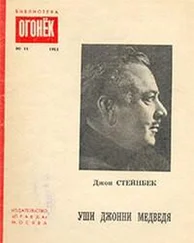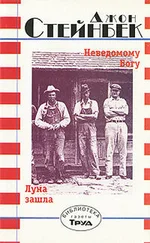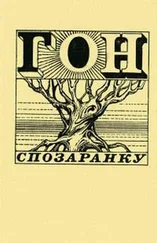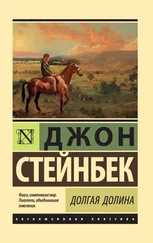Джон Стейнбек - Cup of Gold [Золотая чаша]
Здесь есть возможность читать онлайн «Джон Стейнбек - Cup of Gold [Золотая чаша]» — ознакомительный отрывок электронной книги совершенно бесплатно, а после прочтения отрывка купить полную версию. В некоторых случаях можно слушать аудио, скачать через торрент в формате fb2 и присутствует краткое содержание. Год выпуска: 1929, Жанр: Прочие приключения, на английском языке. Описание произведения, (предисловие) а так же отзывы посетителей доступны на портале библиотеки ЛибКат.
- Название:Cup of Gold [Золотая чаша]
- Автор:
- Жанр:
- Год:1929
- ISBN:нет данных
- Рейтинг книги:5 / 5. Голосов: 1
-
Избранное:Добавить в избранное
- Отзывы:
-
Ваша оценка:
- 100
- 1
- 2
- 3
- 4
- 5
Cup of Gold [Золотая чаша]: краткое содержание, описание и аннотация
Предлагаем к чтению аннотацию, описание, краткое содержание или предисловие (зависит от того, что написал сам автор книги «Cup of Gold [Золотая чаша]»). Если вы не нашли необходимую информацию о книге — напишите в комментариях, мы постараемся отыскать её.
Cup of Gold [Золотая чаша] — читать онлайн ознакомительный отрывок
Ниже представлен текст книги, разбитый по страницам. Система сохранения места последней прочитанной страницы, позволяет с удобством читать онлайн бесплатно книгу «Cup of Gold [Золотая чаша]», без необходимости каждый раз заново искать на чём Вы остановились. Поставьте закладку, и сможете в любой момент перейти на страницу, на которой закончили чтение.
Интервал:
Закладка:
There is a peace in the tropic oceans which passes a desire for understanding. Destination is no longer an end, but only to be sailing, sailing, out of the kingdom of time. For months and years they seemed to slip onward, but, there was no impatience in the crew. They did their work, and lay about the deck all in a strange, happy lethargy.
One day there was a little island floating in the sea, shaped like a haycock and green as the first spears of barley. It was thickly covered with a tangling, fierce growth, vines and creepers and a few dark trees.
Henry saw it with eyes that looked out on enchantment. They passed that island, and another and another, until, at last, in the blackness of a tropic early morning, the ship came in to Barbados. Its anchors splashed into the sea and went tugging down with the hawser flying behind them.
On the shores there was lettuce green jungle as on the little islands, and farther back, plantations with straight laid rows and white houses with red roofs; farther still, the red soil showing like wounds through the jungle of the hills; and far behind, mountains that rose sharp and hard with the appearance of strong gray teeth.
Small dug-out boats came to them, bearing rich fruits and piles of trussed up fowls. They came to sell, and to buy or steal that which the ship carried. Shining black men sang rich cadenced chants as they pulled at the oars, and Henry, close against the rail, was overjoyed with the new land. It was more than he had hoped. The sight brought happy, silly tears to his eyes.
Tim was standing near, looking crestfallen and sad. At length he came and stood in front of Henry.
"It's grieving me to be hurting a fine boy that bought mybrea kfast," he said. "It's grieving me so I can't sleep."
"But you have not hurt me," cried Henry. "You've brought me to the Indies where I wanted to be so badly."
"Ah!" said Tim sorrowfully, "if only I had a religion to me like the master, I might say, '
'Tis God's will,'-and then be forgetting about it. And if I had a business or position I might be talking how a man must live. But I have no religion in me at all, save only an Ave Mary or amiserere dominie in storms; and as to position, why, I'm only a poor sailor out of Cork, and it does be grieving me to hurt a boy that bought my breakfast, and me a stranger." He was watching a long canoe that drew near to them, six strong Caribs rowing it. In the stern sat a little, nervous Englishman, whose face had not tanned with the years but had grown redder and redder until the tiny veins seemed to be running on the outside of his skin. In the little man's pale eyes there was the light of perpetual indecision and perplexity. His canoe bumped the ship's side and he climbed slowly aboard and went directly to the master.
"These it is, now," cried Tim; "and you will not be thinking too badly about me, will you, Henry-seeing the grief it does me?"
The captain was shouting, "Galley boy! Oh, galley boy! Morgan! Aft!"
Henry went back to where the Englishman and the captain were standing. He was amazed when the little colonist gingerly felt his arms and shoulders.
"I might give ten," he said to the captain.
"Twelve!" the captain snapped.
"But do you really think he is worth it? I'm not a rich man, you see, and I just thought that ten-"
"Well, you may have him for eleven, but, as God sees me, he's worth more. Look at the knit of him and the broad shoulders. He won't die like so many. No, sir, he's worth more, but you may have him for eleven."
"Well, if you really think so," the planter said hesitantly; and he began pulling money out of his pockets, money that was mixed with tangled string, and pieces of chalk, and a bit of a quill pen, and a broken key.
The master drew a paper from his pocket and showed it to the boy-an order of indenture for five years, with the name Henry Morgan nicely filled in, and the British seal at the bottom.
"But I don't want to be sold," cried Henry. "I didn't come to be sold. I want to make my fortune and be a sailor."
"So you shall," the master answered kindly, as though he gave permission, "after five years. Now go along with the gentleman and let us have no caterwauling. Do you think I could run this ship just bringing out boys that want to come to the Indies? You do your work and trust in God, and it may be a very good thing for you. Experience is never wasted on the sharp albeit humble soul." He pushed Henry soothingly along the deck in front of him.
At last the boy found his voice. "Tim," he cried, "Tim. They're selling me, Tim. Oh, Tim, come to me!"
But there was no answer. Tim heard, and he was sobbing in his hammock like a small, whipped child.
And Henry, as he climbed over the side ahead of his new master, felt nothing at all. But for a little catching in his throat, there was no sharp feeling in him-only a heavy, sodden dullness.
So Henry Morgan came to be living in Barbados by authority of a white paper which forced his life and soul and body to kneel before the pleasure of one James Flower, planter.
James Flower was not a hard man, and certainly he was not a very brilliant man. His whole life had been a hunger for ideas-any ideas-the creation of them. He wanted to conceive ideas, to warm them to throbbing life, then to hurl them on an astonished world. They would go bobbing like stones started down a long hill, awakening an avalanche of admiration. But no ideas came to him.
His father had been a stolid English curate who wrote stout sermons which were actually published, though very few ever bought them. His mother wrote poetry which was a kind of summary of the sermons. Her verses were appended to the volume of rugged orthodoxy. And both his father and mother had ideas. Both were creators in a small way.
James Flower bad been reared in an atmosphere of- "I must be walking to my publisher's now, Helen!"
"But William, a glorious thing burst upon me this morning as I was doing my hair-such a conception! It must surely have come from God. It will be done in couplets I think. Oh! glorious! And it just fits in with those delightful words of yours on humility."
"Ah, well; I must be walking to my publisher's now, to see how the sermons are going. I sent a copy to the Archbishop, and he may have been talking about them. Such a thing would start a great sale I think."
Yes, they were people with ideas, and often they shook their heads over their dull son. He had held them in awe, had been frightened at their greatness and ashamed of himself. And so, early in his life, he had made a determination to have ideas. His reading had been tremendous. King James' "Defense of Witchcraft" came into his hands, and he set about to prove it true. With the aid of ancient incantations and a black lotion which contained a number of filthy ingredients together with a large amount of hashish, he attempted to fly from the roof of his house. It was while his two broken legs were healing that he came on Scot's "Discoverie of Witchcraft."
The system of Descartes was causing a stir among learned men, and James Flower, too, determined to reduce all philosophy to a basic postulate. He laid out paper and a number of fine pens at his side, but he could never come on his postulate. "I think, therefore I am," he said; "at least, I think I am." But this led in a circle and got him nowhere. Then he joined the new-foundedschoolof Bacon. With persistent experiments he burned his fingers, and tried to cross clover with barley, and pulled the legs from numberless insects, striving to discover something-almost anything; but he never did. As he had a moderate income from money left him by an uncle, his experiments were varied and extensive.
A Separatist of fanatic intensity had written a violent book of the best scientific manner-The Effects of Alcoholic Spirits, Momentary and Perpetual. This work fell into the hands of James Flower, and he set out one evening to verify some of its more fantastic theories. In the midst of his investigation the spirit of induction left him, and, without cause or warning, he assaulted one of His Majesty's guardsmen with a potted plant. Had he only known it, this was the one spontaneous idea of his life. The matter was hushed up by an archdeacon who was related to his mother. James Flower's small fortune was invested in a plantation in Barbados, and he was sent to live there. Clearly, he did not fit in with orthodoxy and pentameters.
Читать дальшеИнтервал:
Закладка:
Похожие книги на «Cup of Gold [Золотая чаша]»
Представляем Вашему вниманию похожие книги на «Cup of Gold [Золотая чаша]» списком для выбора. Мы отобрали схожую по названию и смыслу литературу в надежде предоставить читателям больше вариантов отыскать новые, интересные, ещё непрочитанные произведения.
Обсуждение, отзывы о книге «Cup of Gold [Золотая чаша]» и просто собственные мнения читателей. Оставьте ваши комментарии, напишите, что Вы думаете о произведении, его смысле или главных героях. Укажите что конкретно понравилось, а что нет, и почему Вы так считаете.
![Джон Стейнбек Cup of Gold [Золотая чаша] обложка книги](/books/181372/dzhon-stejnbek-cup-of-gold-zolotaya-chasha-cover.webp)





